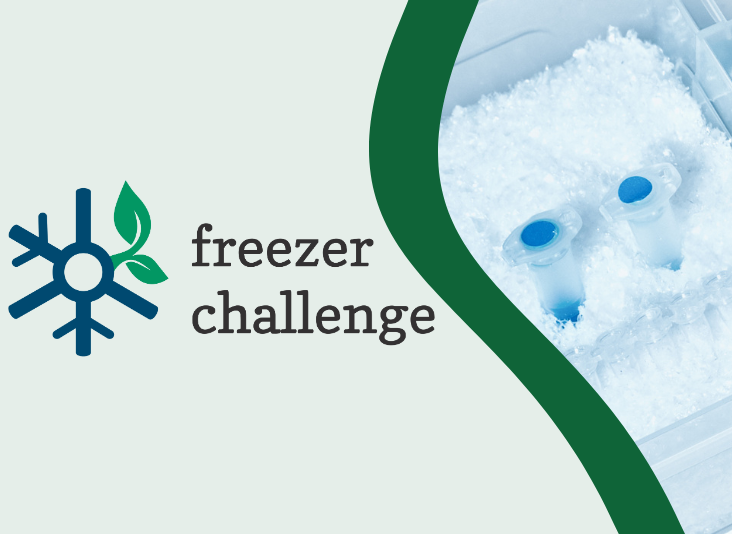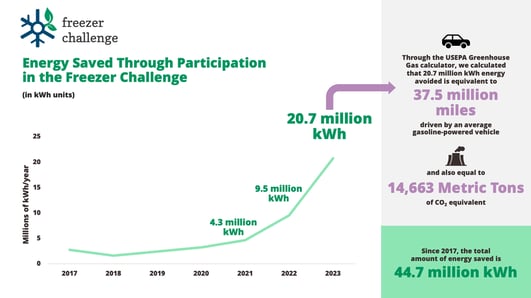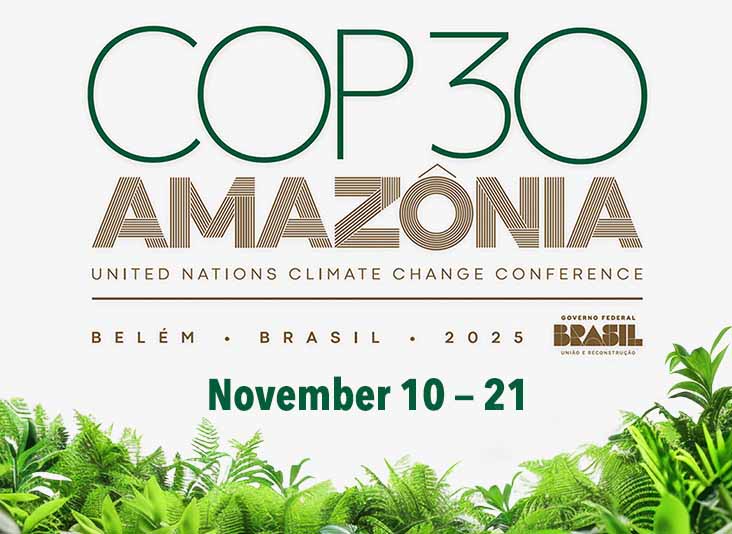Reduce Energy Consumption, Costs, and Environmental Impact in Your Lab
*Editor's Note: We are happy to feature this guest blog from the My Green Lab team. My Green Lab, a non-profit environmental organization with a mission to build a global culture of sustainability in science, works to introduce both new perspectives and proven best practices within a carefully crafted framework to inspire tens of thousands of scientists to make a positive change in their labs by reducing the environmental impact of their work. You can learn more about My Green Lab on their website.
Laboratory fridges and freezers are essential for scientific discovery and the betterment of human health—but your ultra-low temperature freezer may be consuming the same amount of energy each day as a small house! In the pursuit of sustainability, this can stall progress towards reaching your environmental goals.
Luckily, options exist to mitigate this—including via third-party and partner challenges and solutions. One such option is through My Green Lab’s free, virtual, 2024 International Laboratory Freezer Challenge, where, over a period of six months, your lab will compete to implement tried-and-true best practices for your lab cold storage. To date, the annual Freezer Challenge program has helped save a whopping 44.7 million kWh worth of energy!
Lab Cold Storage Practices Pose Challenges
Inefficient lab cold storage practices pose significant challenges for scientific research. Laboratory refrigerators and freezers, essential for preserving scientific samples, are notorious energy consumers. Outdated or poorly maintained units are especially bad—their usage contributes to unnecessary energy waste and risks sample degradation or loss, which strains laboratory budgets and compromises research integrity.
Inefficient resource management exacerbates these challenges. Inadequate inventory practices and cluttered storage spaces impede workflow efficiency, leading to increased operating costs and wasted resources. Laboratories struggle to optimize resource utilization, which often results in inefficiencies and a lack of space for new sample accommodation.
These issues collectively undermine research outcomes and compromise the sustainability of laboratory operations. Addressing these challenges is crucial for laboratories to reduce environmental impact.
By adopting efficient cold storage practices and implementing effective resource management strategies, labs can enhance productivity, minimize waste, and contribute to scientific advancement while protecting the environment for future generations.
Embracing Sustainable Cold Storage Practices with the Freezer Challenge
To address these pressing concerns, initiatives like the Freezer Challenge offer a pathway towards sustainable lab cold-storage practices. These programs foster collaboration and knowledge-sharing among labs and empower participants to implement energy-saving measures. Through targeted actions and collective efforts, labs can significantly reduce energy consumption, mitigate environmental impact, and enhance research capabilities while preserving sample integrity.
Additionally, this race to sustainability harnesses a spirit of competition within and between laboratories to encourage lab cold-storage best practices.
As part of this, participants need to use well-evidenced criteria and best practices that support scientific quality and resilience while minimizing total costs and environmental impacts of sample storage. Freezer Challenge participants will benefit from:
- Reducing energy consumption, costs, and environmental impact of the lab by adopting best practices in temperature tuning, unit retirements, and inventory management.
- Learning and applying proper cold storage maintenance techniques to help avoid future failures.
- Collaboration and knowledge-sharing among laboratories, driving innovation in sustainable cold storage practices.
- Removal of unneeded or unviable samples from cold storage units, freeing up that space for new samples without having to purchase additional refrigerators and freezers.
- Reduced costs associated with maintaining extraneous cold storage units.
- Improved researcher access to and security for viable samples.
- Development of ongoing cold storage management practices that support efficiency and maximize lab space utility.
- Participation recognition, including awards!
Tips For Freezer Challenge Success
- Learn the ins and outs of deep freeze energy usage to combat energy waste at the source.
- Collaborate and communicate with team members and third-party partners to drive innovation.
- Rely on partner and industry knowledge and best practices.
- Turn to dedicated mechanics to repair old and outdated materials to give them a new life.
A Brief Overview of the Competition
The International Laboratory Freezer Challenge is an annual competition hosted by the non-profit organizations My Green Lab and the International Institute for Sustainable Laboratories (I2SL). Here's a brief overview:
- Who: Any laboratory equipped with cold storage facilities for scientific samples is eligible to join, including academia, biotech, government, and healthcare.
- When: January 1 to July 1, 2024. Scoresheets will be accessible starting January 1 (but participants can sign up any time!).
- Register: freezerchallenge.org/register
- Cost: Free upon online registration.
- Awards: Winners receive plaques or certificates and get acknowledged in an online publication. They also get recognized at the I2SL Conference. Check out the 2023 winners here.
- Questions? Contact info@mygreenlab.org, browse the My Green Lab media kit, or start a discussion with Triumvirate Environmental about your energy reduction needs!
Join us in the 2024 International Laboratory Freezer Challenge and take a proactive step towards a greener, more sustainable future for scientific research. Register your lab today at www.freezerchallenge.org and become a catalyst for positive change.







